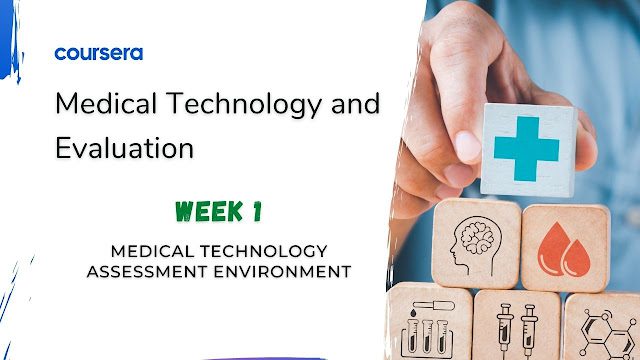Medical Technology And Evaluation Week 1 Quiz Answer
Hello friends in this article i am gone to share Medical Technology And Evaluation Week 1 Quiz Answer with you..
Course link: https://www.coursera.org/learn/healthcare-medical-technology
Medical Technology and Evaluation by University of Minnesota
Also visit this link: Medical Technology And Evaluation Week 4 Quiz Answer
Medical Technology Assessment Environment
Question 1) Which of the following is a use a potential user of medical technology evaluation results?
- Insurers.
- Manufacturers.
- Health care providers.
- All of the above.
Question 2) True or False: A medical technology evaluation is just a pricing project.
- True
- False
Question 3) How can a new technology with lower costs lead to higher health care expenditures?
- No new technologies have lower costs.
- The technology will only reduce expenditures.
- The technology is effective and used by a larger population than the current technology.
- The technology has better outcomes compared to the current technology.
Question 4) What is the regulatory reason that medical technology evaluation evidence is needed?
- Pricing.
- Only payment/reimbursement.
- Venture capitalist investments.
- Marketing approval and payment/reimbursement.
Question 5) Which of the FDA approval phases occurs after FDA approval?
- Phase I
- Phase IV
- Phase III and IV
- None
Question 6) True or False: Once approved a new drug can only be prescribed for what it was approved to treat.
- True
- False
Question 7) Approximately what percent of new medical devices require a Pre-Market Approval (PMA)?
- 90 percent
- 0 percent
- 100 percent
- 10 percent
Question 8) What is the next step after a drug is approved by the FDA?
- File an NDA.
- Design the packaging.
- Conduct a clinical trial.
- Get insurers to pay/reimburse.
Question 9) What aspects of medical care is covered by Medicare Part A?
- Prescription drugs.
- Outpatient services.
- Inpatient hospital care.
- Patient out-of-pocket costs.
Question 10) True or False: Patients may have higher cost sharing obligations for the more expensive brand name version of a drug.
- True
- False

